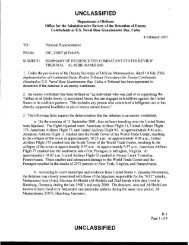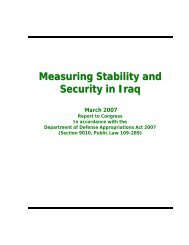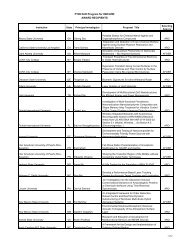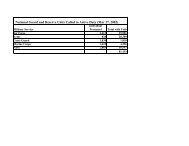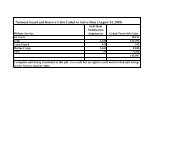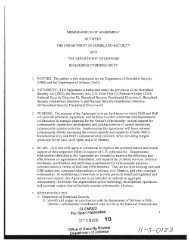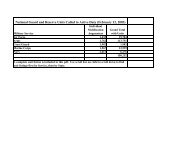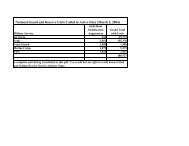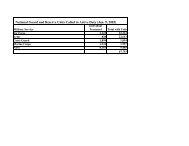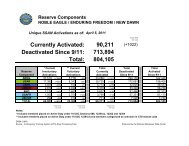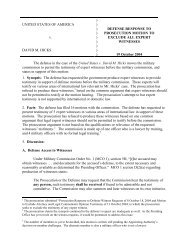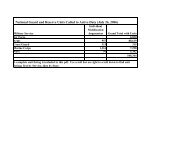Report - United States Department of Defense
Report - United States Department of Defense
Report - United States Department of Defense
Create successful ePaper yourself
Turn your PDF publications into a flip-book with our unique Google optimized e-Paper software.
UNCLASSIFIED<br />
accordingly in October 2012. As a result <strong>of</strong> ISAF’s continued reforms in this area, there was an<br />
81 percent decrease in ISAF-caused civilian casualties by fixed-wing assets from October 2012<br />
to March 2013.<br />
The <strong>United</strong> Nations Assistance Mission in Afghanistan’s (UNAMA) 2012 Annual <strong>Report</strong> on the<br />
Protection <strong>of</strong> Civilians in Armed Conflict (UNAMA PoC) recognized the steps taken by ISAF to<br />
reduce civilian casualties and documented a 46 percent decrease <strong>of</strong> civilian casualties resulting<br />
from operations by pro-government forces compared with the same period in 2011, and more<br />
specifically, a 42 percent overall decrease resulting from aerial attacks. Other areas covered by<br />
UNAMA PoC show trends similar to those identified by ISAF, despite differing data sources and<br />
methodologies.<br />
ISAF continued to work closely with its Afghan counterparts to ensure rigorous and accurate<br />
reporting <strong>of</strong> civilian casualties caused by Afghan and coalition forces. An area <strong>of</strong> focus in the<br />
transition <strong>of</strong> security responsibilities to the Afghan government is the ongoing transfer <strong>of</strong> ISAF<br />
civilian casualty avoidance and mitigation measures, procedures, and capabilities to the ANSF.<br />
The CCMT cooperated with Afghan security institutions to facilitate this process, and work<br />
culminated with the MoD hosting the first Population Protection Conference in December 2012.<br />
Figure 5: Total Civilian Casualties by Force and Total by Month<br />
32





